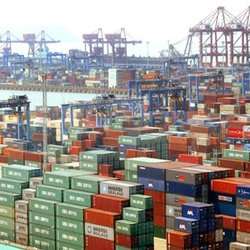Chinese manufacturing activity expanded for a second consecutive month in April, but at a slower pace, according to official data released on Sunday.
The official Purchasing Managers’ Index (PMI) was 50.1 in April, down from 50.2 in March, but still above the 50-point mark (indicating expansion) following seven straight months of manufacturing contraction from August last year through February.
The April PMI reading failed to meet what analysts polled by Reuters had expected of 50.4. Zhang Liqun, a researcher with the State Council’s Development Research Center, was quoted by Xinhua as saying: “The Chinese economy is stabilizing since the reading still remains in positive territory, albeit falling slightly in April,”
China PMIs positive but unspectacular in April. Steel and construction readings show old economy firing up again pic.twitter.com/KeK7SyQInK
— Tom Orlik (@TomOrlik) May 1, 2016
However, Zhou Hao, senior emerging market economist at Commerzbank in Singapore, said that the results were “a little bit disappointing, adding that “to some extent, this hints that recent China enthusiasm has been a bit overpriced and the data improvement in March is short-lived.”
The production sub-index expanded at almost the same pace as the month before (down from 52.3 to 52.2), but above the first quarter average of 51.3.
The sub-index for new orders dropped to 51.0 from 51.4 in March.
The April PMI reading follows data released last week which revealed industrial-sector profits in China have risen strongly – on rising steel and oil prices.
Eva Yi, macroeconomic analyst at China International Capital, was quoted by The Financial Times as saying:
“The swift improvement in industrial profits should lead to a stabilisation of manufacturing investment and an increase in overall business activity.”
Adding: “Ultimately this may lead to rising household income and an acceleration in discretionary consumption.”
Some analysts are concerned that the recent boost in manufacturing performance may be a result of more debt being taken on by local governments and companies. Last week, the five largest banks in China said that during the first quarter bad loans rose by 53.2bn yuan ($8.21 billion).

